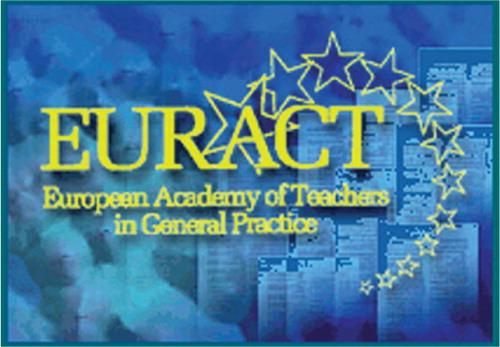CONTENT
As every year for 21 years the International EURACT Bled Course was organized for European teachers and trainers of students and trainees in general practice/family medicine. This year, our aim was to make participants know and understand the reasons for the difficult situations arising in family medicine practices; to know the factors that affect the difficulty of the relationship; to understand the impact of difficult situations on health care outcomes and family physician's wellbeing; to recognize their own emotions in a difficult situation; to react in a professional way in a difficult situation in the clinic or teaching; to respect the values of professional behaviour in health care and in teaching; and to be aware of the various forms of ‘difficult situations’ in daily practice and in teaching. The aim of the workshop was to teach participants to transfer new knowledge, skills and attitudes to their students and to other family physicians in their working environment.
Course directors were: Jaime Correia de Sousa and Yonah Yaphe, University of Minho, Braga, Portugal; Jo Buchanan, Sheffield, UK; Henry Finnegan, ICGP, Ireland; and Mateja Bulc and Marija Petek Šter, University of Ljubljana, Slovenia.

GENERAL STRUCTURE
The course has a well-established structure. Each day starts with a plenary session, which consists of a lecture from one of the course directors on one aspect of the course theme. The rest of the day is spent in small groups during which participants have the opportunity to explore the theme in greater depth. Each group produces a teaching module by the end of the week, which participants can then take back with them to use in their home countries. On the final morning, each group presents the structure of their module in the plenary session.
A highlight of the course is the opportunity provided by the Bled Community Health Care Clinic and its Director, Leopold Zonik, MD, to visit patients in their own homes for one of the sessions.
According to the tradition of the course, there is always a different social programme, taken care of by Nena Kopčavar-Guček and Marko Kocijan (Slovenia).
THIS YEAR’S TOPICS
This year's course hit a record both in the number of participants (59) and the number of participating countries (17): UK, Ireland, Portugal, Finland, Estonia, the Netherlands, Belgium, Georgia, Turkey, Romania, Serbia, Macedonia, Montenegro, Croatia, Poland, Israel and Slovenia. Introduction and presentation of the participants was followed by introductory lecture by Mateja Bulc, followed by the lecture ‘Medical unexplained symptoms’ (Jaime Correia de Sousa). The next day started with Jo Buchanan's lecture ‘Effective strategies to deal with difficult situations’. House visits were made to patients of the Bled Community Health centre. On Thursday, we were taught to use Yonah Yaphe's qualitative analysis in dealing with and teaching students and trainees about difficult situations in family practice. On Friday, we were dealing with doctor's health. Henry Finnegan warned participants that even though we were doctors and teachers, so to speak, the crème de la crème of European family medicine, our health could also be at stake, showing his example. His shocking lecture made us realize that doctors are also vulnerable and no ‘gods in white coats’. In the afternoon, we were intrigued by Igor Svab's Joker session on the joy of being the family medicine doctors, using Penelope, Romeo and Juliet, Sherlock Holmes, Mother Teresa, Fred Astaire, Ginger Rogers and Laurence Olivier to open our eyes.
Saturday’s country reports are a well-established part of the course, presented by the chairs of teaching and research in national family medicine University departments of participating countries. This time, the number of presentations ran out of time, such interest has been shown.
All the knowledge we have gathered in the Bled five-day course, will be transferred to European family medicine teaching departments, to our students, trainees and colleges. The 2013 Bled Course will deal with doctors’ wellbeing. A warm welcome!
